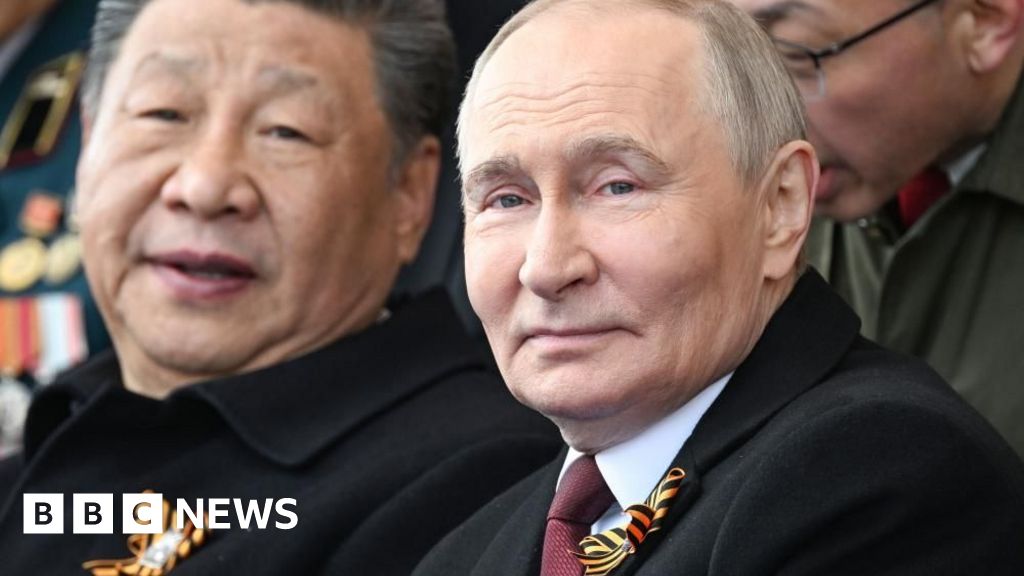ARTICLE AD BOX
By Jenny Hill
BBC News, Polish border
One volunteer told the BBC he had helped about 100 people who had crossed Poland's border with Belarus
In the dense forests along Poland's border with Belarus, a beacon of light has been shining in the dark.
A network of volunteers has been providing support, supplies and, in some cases, life-saving medical help to the people who make it across the heavily guarded frontier into the EU.
Michal - who didn't want to be fully identified - is one of them. Every night he puts a green light in the window of his house in the woods.
It's a sign, he says, that shows refugees "they can always try to ask for help".
Michal lives inside an exclusion zone which the Polish authorities have imposed in the area around the border. Journalists - and official aid agencies - are banned under the strict state of emergency, which was declared in September.
Security has been particularly tight in recent days since migrants - mostly from the Middle East - arrived in large numbers at the border. Thousands have been blocked from entering the EU, leaving them stranded in freezing temperatures between Polish border guards on one side, and Belarusian ones on the other.
They are not wanted in the EU, which has accused Belarus of sending migrants to the Polish border in retaliation for sanctions.
But Michal sees what the Polish government would rather the rest of the world didn't; that some people do get through the border. He's helped about 100 of those people in recent weeks.
Poland declared a state of emergency on its border region with Belarus in September
"Some of them are in a really bad state", he says. "Trying to cross the forest without boots when the temperature is dropping quite often below zero. There are a lot of children among them."
Michal says that some claim they were beaten by Belarusian soldiers and are terrified of being pushed back over the border, something the Polish border force do regularly.
"This is the main threat for them," Michal says. "That's why they are trying to stay in hiding, even if they're really sick and out of water for example."
At least eight people are known to have died in the woods in recent weeks. The body of a young Syrian man was found just a few days ago. It's feared that, as winter deepens, more will die.
The volunteer network extends outside of the forest. In the town of Michalowo, several shipping containers are stacked with bottles of water, food, blankets, nappies.
Iwo Los said aid groups must be allowed to provide humanitarian assistance
Iwo Los - who represents Grupa Granizca, an umbrella organisation of NGOs - is meeting with other volunteers here. They respond to calls for help, either directly from people in the woods, or from locals living there who spotted them.
The organisation has received 3,000 such requests for help in the last four weeks.
"We are facing a humanitarian crisis," Mr Los says. "Professional humanitarian organisations must be allowed and be encouraged to operate in the field."
The volunteers often record their interactions with people in the woods.
Piotr Matecki showed us harrowing footage of a severely hypothermic and, reportedly, pregnant woman. She crossed the border on Friday night with her husband and five children.
The video show medics trying to soothe the woman, who struggles to breathe and is moaning in distress. The medics are trying to work with as little light as possible to avoid alerting Polish border guards.
"Whether you are pro refugees or against them, I think we all deeply agree that people need some basic humanitarian help," Mr Matecki says.
In this case, border guards did arrive. The woman is now in hospital, her husband and children in police custody. Two other men - one of whom is thought to be related to the family - were reportedly taken back to the border.
As hundreds of people gather on the Belarusian side of the Kuznica border crossing into Poland and the political stand off continues, we report on the people who do make it through. Our latest piece from Poland pic.twitter.com/KdnzBiPwy0
— jenny hill (@jennyhillBBC) November 15, 2021The BBC is not responsible for the content of external sites.View original tweet on Twitter
Outside the police station where the family was being held, we met Magdalena Biejat, an MP from Poland's Left party. She works with the volunteers who try to ensure that the rights of migrants and asylum seekers are protected.
"We don't trust the system because we've seen many pushbacks," she says.
She says they want Polish authorities to respect the Geneva Conventions, a series of treaties that established international legal standards for humanitarian aid.
Polish border guards should "stop the pushbacks and stop endangering the lives of people, including really small kids", Ms Biejat says.
But Poland's government insists it is acting legally and has an obligation to defend its territory.
We went to the woods where the young family had been found. We saw the blankets, clothing, water bottles they'd left behind.
The scattered possessions were a poignant reminder, as the political deadlock continues, of those caught in the middle.
Blankets and other belongings had been left, discarded in the forest

 3 years ago
69
3 years ago
69








 English (US) ·
English (US) ·